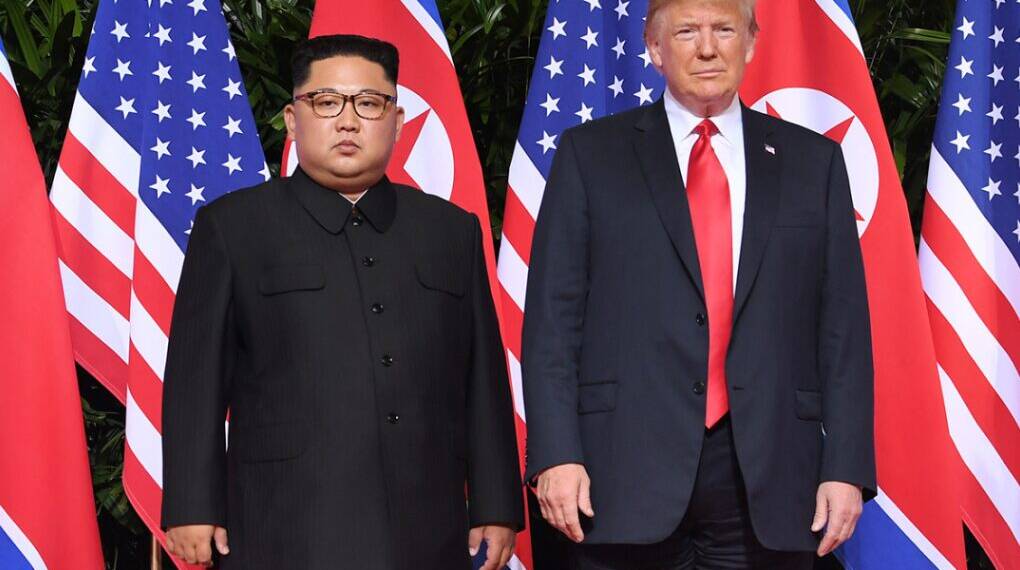In a bold and defiant statement, North Korea has declared that its nuclear weapons program is no longer up for negotiation, urging the United States to accept what Pyongyang calls a “new reality.” The message, delivered through state media KCNA on Tuesday, marks a sharp escalation in the ongoing stalemate between the two countries and throws cold water on any hopes of reviving denuclearization talks.
The remarks came from Kim Yo Jong, the influential sister of North Korean leader Kim Jong Un, who is widely regarded as his closest adviser and spokesperson on foreign affairs. Speaking through a statement published by KCNA, she asserted that no amount of diplomacy — or personal rapport between Kim and former U.S. President Donald Trump — would result in Pyongyang giving up its nuclear arsenal.
“If the U.S. fails to accept the changed reality and persists in the failed past,” she said, “the DPRK-U.S. meeting will remain only as a ‘hope’ of the U.S. side.”
Nuclear Statehood No Longer Up for Debate
Kim Yo Jong emphasized that North Korea now considers itself an established nuclear power and warned that any attempts to deny this status “will be thoroughly rejected.” She added that the geopolitical situation had changed dramatically since the three summits between Kim Jong Un and Donald Trump during the latter’s first term.
While acknowledging that the personal relationship between Kim and Trump “is not bad,” she dismissed any U.S. expectations that this could be used to dismantle North Korea’s nuclear program.
“The effort would only be the subject of mockery,” she stated, referring to Washington’s past strategy of leveraging personal diplomacy to achieve disarmament.
Warming Ties with Russia Signal New Alliances
In a related development, KCNA also reported the resumption of direct passenger flights between Pyongyang and Moscow for the first time in decades. The renewed air route highlights a strengthening relationship between North Korea and Russia — one that has drawn concern from the West.
U.S. and allied intelligence agencies have accused North Korea of providing military support to Russia in its war against Ukraine, including arms and troops. In return, Moscow is suspected of offering technological assistance to bolster Pyongyang’s defense capabilities — a claim both parties have neither confirmed nor denied.
The resumption of flights was described by KCNA as occurring “amid the daily-growing many-sided visits and contact between” the two nations.
U.S. Response: Trump Still Open to Dialogue
Despite the DPRK’s hardened stance, a White House official told Reuters that Donald Trump remains committed to the objectives of his previous diplomatic efforts.
“The President retains those objectives and remains open to engaging with Leader Kim to achieve a fully denuclearized North Korea,” the official said.
Trump and Kim famously held three meetings during Trump’s presidency, starting with the historic 2018 Singapore summit, which produced a symbolic joint agreement. However, the talks broke down during the 2019 Hanoi summit, largely due to disagreements over the lifting of sanctions.
Since then, efforts to restart negotiations have stagnated, even as North Korea has significantly ramped up its missile tests and nuclear rhetoric.
“Nukes or Nothing”: A New Era of Inflexibility?
Analysts say North Korea’s latest declaration marks a strategic shift from ambiguity to open defiance. The regime is now positioning its nuclear program not as a bargaining chip, but as an irreversible pillar of national security.
“This isn’t just a hardline statement — it’s a formal burial of the denuclearization narrative,” said Dr. Lim Soo-jin, a security expert at Korea University. “It suggests Pyongyang is no longer interested in deals. It wants recognition.”
The question now is whether the U.S. — under either Trump or a future administration — will pursue engagement with a nuclear-armed North Korea or return to a policy of containment and isolation.
A Standoff with No Exit?
As global alliances shift and North Korea tightens ties with Russia, the nuclear impasse is deepening. The U.S. still expresses hope for diplomacy, but Pyongyang appears to have made up its mind.
The once-hopeful image of Trump and Kim shaking hands in Singapore now feels like a relic of a bygone era — overtaken by missiles, sanctions, and a new, colder reality.








